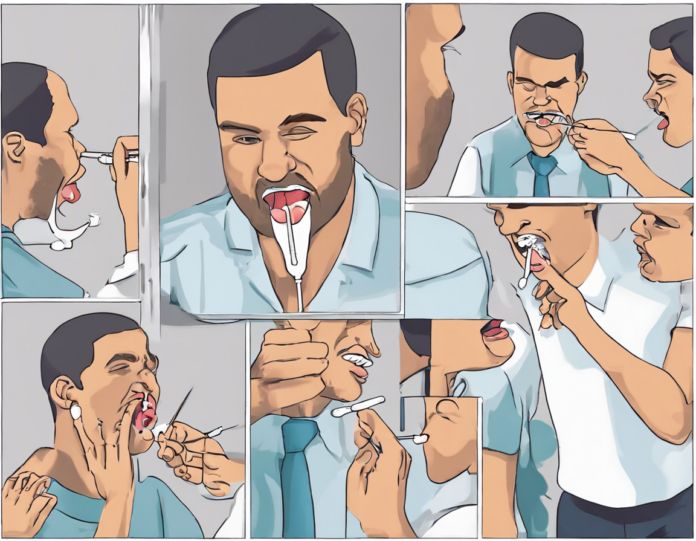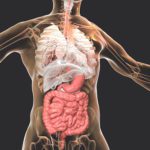Mouth swab tests, also known as saliva tests, have gained popularity in recent years due to their convenience, non-invasiveness, and ability to detect various substances in the body. Employers, law enforcement agencies, and healthcare providers often use these tests to screen for drugs, alcohol, and diseases. If you are facing a mouth swab test and want to ensure accurate results, it’s important to understand how these tests work and what you can do to prepare. In this comprehensive guide, we will cover everything you need to know about mastering the mouth swab test.
How Does a Mouth Swab Test Work?
A mouth swab test involves collecting a sample of saliva from the inside of the mouth using a swab. The swab is then placed in a sealed container and sent to a laboratory for analysis. The sample is tested for the presence of specific substances, such as drugs or alcohol, by detecting the metabolites (breakdown products) of these substances in the saliva.
Types of Mouth Swab Tests
- Drug Testing: Employers often use mouth swab tests to screen for illegal drug use in job candidates and employees. These tests can detect a wide range of drugs, including marijuana, cocaine, amphetamines, and opioids.
- Alcohol Testing: Law enforcement agencies may use mouth swab tests to detect the presence of alcohol in drivers’ systems. These tests can determine if a person has recently consumed alcohol and is over the legal limit for driving.
- Disease Testing: Healthcare providers may use mouth swab tests to screen for various diseases and infections, such as COVID-19, HIV, and genetic conditions. These tests are quick, easy, and less invasive than blood tests.
How to Prepare for a Mouth Swab Test
To ensure accurate results on a mouth swab test, it is important to follow some guidelines to prepare for the test:
-
Avoid eating or drinking: Refrain from eating, drinking, smoking, or using any oral products (gum, mints, etc.) for at least 30 minutes before the test. Food particles or substances in the mouth can affect the accuracy of the results.
-
Maintain good oral hygiene: Brush your teeth and rinse your mouth with water before the test to remove any debris or contaminants that could interfere with the results.
-
Stay hydrated: Drink water before the test to help produce enough saliva for the sample collection. However, avoid excessive water intake, as it can dilute the saliva sample.
-
Follow any specific instructions: If you are taking a test for a specific purpose, such as drug testing for employment, follow any additional instructions provided by the testing facility.
Tips for Passing a Mouth Swab Test
If you are concerned about the results of a mouth swab test, especially for drug testing, there are some tips and tricks you can use to improve your chances of passing:
-
Avoid drug use: The most effective way to pass a drug test is to abstain from using any illicit substances for an extended period before the test. Most drugs can be detected in saliva for up to 72 hours.
-
Use detox products: There are various detox products, such as mouthwashes and gums, available on the market that claim to help mask the presence of drugs in saliva. However, the effectiveness of these products can vary.
-
Practice good oral hygiene: Regular brushing, flossing, and using mouthwash can help reduce the traces of drugs or alcohol in your saliva.
-
Chew gum: Chewing gum can help stimulate saliva production, which may dilute the concentration of drugs or alcohol in your saliva.
-
Avoid certain foods: Some foods, such as poppy seeds, can produce false positives on drug tests. Avoid consuming these foods before a mouth swab test.
Frequently Asked Questions (FAQs)
-
How long do drugs stay in saliva for a mouth swab test?
Drugs can typically be detected in saliva for up to 72 hours, depending on the type of drug and the frequency of use. -
Can secondhand smoke affect a mouth swab test for drugs?
While secondhand smoke exposure is unlikely to cause a positive result on a mouth swab test, it’s best to avoid being in enclosed spaces with smokers before a test. -
Are mouth swab tests accurate?
Mouth swab tests are considered reliable for detecting recent drug use and alcohol consumption. However, they may have a shorter detection window compared to urine or blood tests. -
Can medications affect the results of a mouth swab test?
Certain medications can potentially interfere with a mouth swab test and produce false positives. It’s essential to inform the testing facility about any medications you are taking. -
Does drinking alcohol affect the accuracy of a mouth swab test for alcohol?
Alcohol can be detected in saliva shortly after consumption. If you have recently consumed alcohol, it may show up on a mouth swab test for alcohol.
In conclusion, mastering the mouth swab test requires understanding how these tests work, preparing properly, and following tips to ensure accurate results. Whether you are facing a drug test for employment or a disease screening, being informed and proactive can help you navigate the process with confidence. Remember to always follow the guidelines provided by the testing facility and consult with a healthcare professional if you have any concerns about the test results.
















